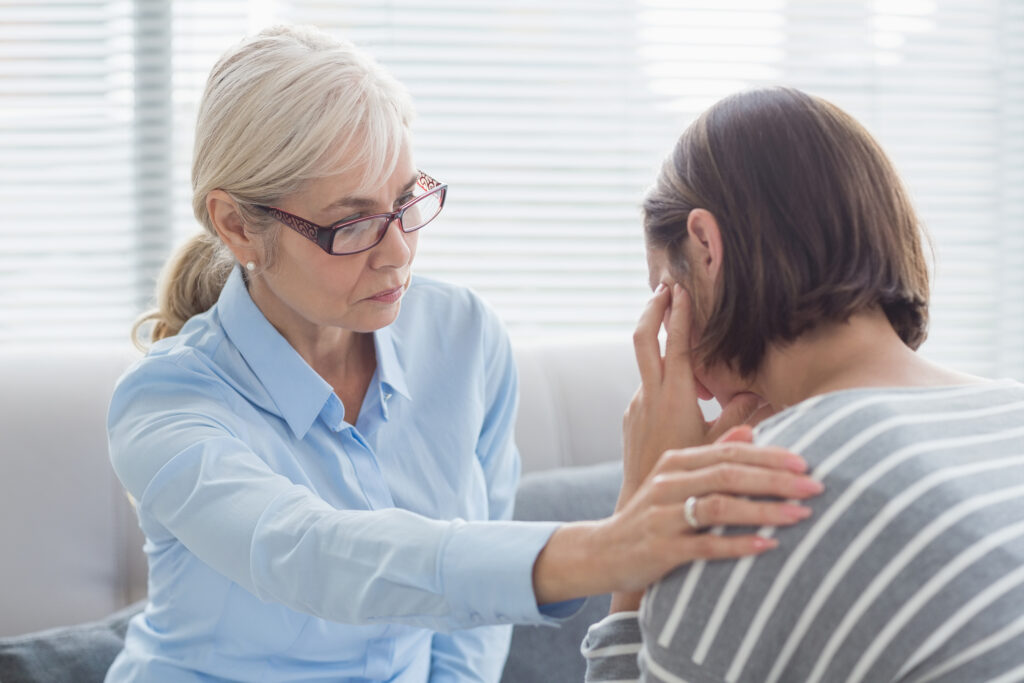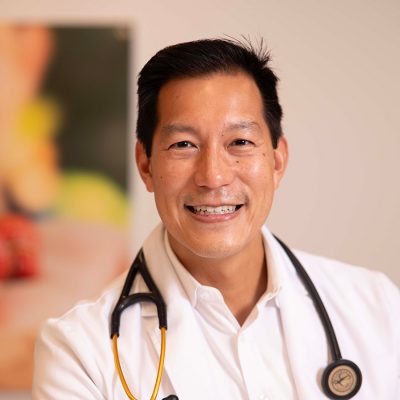There is no shame in seeking professional help to treat stress, says Dr. Jacob Samander, a board-certified psychiatrist with Open Door Family Medical Center.
“You need to treat stress like you treat diabetes,” he said. “As with diabetes, treatment begins with seeing an expert and making lifestyle changes – eating healthier, learning to sleep better, exercising more – and if the diabetes doesn’t get any better, then medication. Acknowledging you have a problem and seeking help is a critical first step.”
Studies show that stress-related illnesses have increased since the pandemic, creating a “new normal.” Raising awareness of the negative impact of stress is particularly important during April, which is National Stress Awareness Month.
“Stress is where external circumstances are overwhelming you, where it affects your ability to function,” said Dr. Samander. “You may be feeling more anxious or depressed. You may have more headaches or stomachaches and the doctors can’t find anything wrong. You’re yelling at your wife, you’re yelling at your co-workers, and people start to wonder, ‘What’s happening to you?’”
A Definition
The World Health Organization (W.H.O.) defines stress as “a state of worry or mental tension caused by a difficult situation. Stress is a natural human response that prompts us to address challenges and threats in our lives.” Chronic stress can worsen pre-existing conditions and increase use of alcohol, drugs, tobacco and other substances, and cause or exacerbate mental health conditions.
Stress is not necessarily a level playing field. “You can have two people dealing with the exact same circumstances, the same stress, who may react very differently,” said Senior Director of Behavioral Health Shonny Capodilupo. “One person may be a more flexible thinker, more adaptable, more able to adjust behaviorally and emotionally to the circumstances and have a higher level of resiliency and ability to cope with the stress. Another may have more rigidity and may be more affected by it. They might be saying ‘I can’t measure up anymore. I can’t handle this. I’m not on my game anymore.”
“There is still a stigma in seeking treatment for mental health issues,” she said. “In many cases, people look for what they perceive as socially acceptable conditions rather than accepting they have a mental health condition. Sometimes, as providers, we have to demystify it and educate. The analogy to a physical health issue is one people can understand. You may need some help to get things working properly, and treatment may not be necessary long term.”
Studies have long shown that Cognitive Behavioral Therapy, along with sleeping better, exercising more, increasing social or down time, and incorporating meditation or other relaxation techniques into their lives can help people cope better with stress.
“From a therapist’s perspective, we identify those patterns and beliefs and how they influence your behavior and interrupt the negative way you’re adapting and create positive ways to allow for healthier, more adaptive reactions and behaviors,” said Capodilupo. “So, instead of snapping at your wife when you walk through the door when you’re overwhelmed after a stressful day at work, maybe you sit in your car for two minutes when you get home to find your transition space before you walk through the door, knowing there is going to be chaos. You learn to pay attention to cues that allow you to step away before you respond negatively.”
Many referrals come from primary care providers at Open Door, who see their patients are struggling with the stress in their lives. “It’s because of the integration of services – behavioral health and primary care – that we at Open Door are able to address the whole person, working as a team toward wellness,” said Capodilupo. “Providers work together in this model, rather than in siloes where they don’t communicate together around the patient’s treatment. Medication is seen as a last resort.”
Added Dr. Samander, “Everyone wants a quick fix. It will take me a long time to teach you sleep hygiene techniques, for example, but 30 seconds to write you a prescription. So, what will the patient want? What will the doctor do? You can’t sleep, you take a pill. You can’t lose weight, you take a pill. You can’t focus, you take a pill.
“If these pills all worked everyone would be thin, well rested, and have no trouble concentrating. It takes work. It takes an effort to feel better. You can’t take shortcuts.”
If you are in immediate distress or are thinking about hurting yourself, call or text the 988 Suicide & Crisis Lifeline or chat at 988lifeline.org.
Open Door Family Medical Center provides health care and wellness programs to individuals and families in need throughout Westchester, Dutchess, Putnam, and Ulster counties. A pioneer Federally Qualified Health Center, the Open Door provides more than 300,000 patient visits annually and serves over 60,000 individual patients, who might not otherwise have access to care.
The Open Door offers an integrated approach to building healthier communities. Primary medical care, dental care, behavioral health care, clinical nutrition, wellness programs, and chronic disease management are the foundation of its clinical programs.




